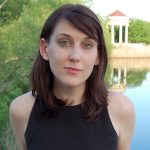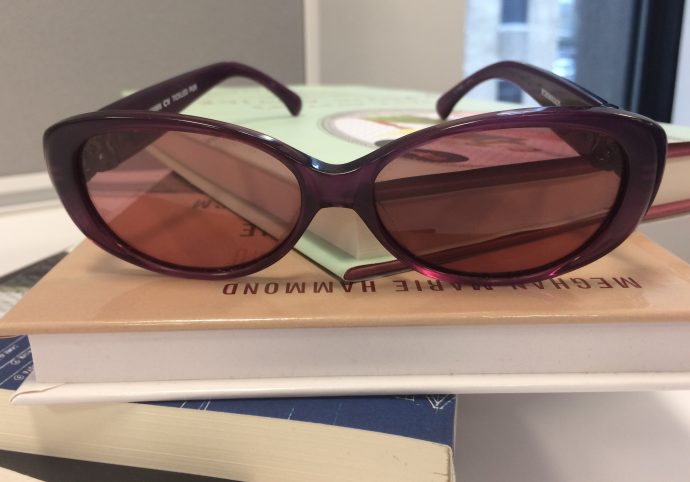I first heard about the Connected Academics proseminar from the then participant Beth Seltzer. When Beth was a fellow, she had just finished her PhD in English at Temple University, where I also received mine. Now she’s an educational technology specialist at Bryn Mawr College.
Beth and I are part of an informal academic support group, created as an accountability tool when all our members were still graduate students. One of the things we do is write weekly e-mails to set goals and reflect on our progress. Recently, Beth wrote, “I’m realizing that this job lets me do a lot of what I liked about teaching without much of what I didn’t like about it.” She continued by explaining that she still has the privilege of working with and educating talented students but without having to regularly plan lessons, run a class, or, of course, grade.
“I am basically the cool aunt,” she jokingly concluded.
I thought about Beth’s description of the benefits of her job about a week later, when I spoke at my university’s career seminar for English majors. I stopped teaching last academic year when I received a staff-writer job with my school’s office of marketing and communications—which is the position I discussed at the seminar—and I have never regretted making the switch. There are many aspects of teaching I enjoy but just as many that I do not. I accepted this mix of positive and negative aspects while I was teaching, thinking that every job had personal benefits and drawbacks. It was only when I started my writing job that I realized that there were other career paths that would bring me more satisfaction.
Still, I was surprised by how much I enjoyed being back in the classroom and speaking to the students about my job. So much so, in fact, that when a student asked me what I didn’t like about teaching, I found it a bit harder than usual to come up with an answer. Rather than make me question my decision not to pursue the professoriate, the experience solidified my belief that I can get the fulfillment teaching provides without being a professor.
I’m not suggesting we make the move from #altac to #auntac, but there is something apt in the comparison between the alt-ac professional and the “cool aunt” (or uncle). The cool aunt is cool because she takes on some but not all aspects of parenting and, partly as a result of this, exposes you to alternative ways of thinking. Whether that means turning you on to new bands, telling you funny stories about your mom when she was a kid, or letting you stay up past your normal bedtime, the significant lesson is that your aunt represents a different but equally valid perspective. In short, she teaches you that things do not always need to be done the way you were taught to do them.
Likewise, learning about different career paths available to the humanities PhD is helpful for all current and prospective doctorates. My colleagues in the Connected Academics proseminar represent many different phases of career exploration. Some are beginning their journey with the proseminar while others already have experience in another field. I might be in the minority because I have ruled out the professoriate; many are actively pursuing both traditional and alternative academic careers. Despite these differences, we all benefit from the proseminar’s focus on the way the PhD prepares us for a variety of career paths instead of just one. Just as it is important for the cool aunt to exist, so too is it necessary for humanities students in all stages of study to be aware of the wide range of available career opportunities.
 Sara Curnow Wilson is a doctoral candidate in English literature at Temple University, where she also writes and photographs for the College of Liberal Arts marketing department. She specializes in twentieth-century British literature and the history and theory of the novel and plans to defend her dissertation in the spring of 2017. Her dissertation explores the influence of literary naturalism on 1930s British modernism, arguing that writers like Samuel Beckett, Jean Rhys, George Orwell, and Virginia Woolf adapt naturalist conventions during the decade in order to create a literature that is more socially and politically relevant than 1920s British modernism. Sara believes that it is important for all graduate students to be aware of the opportunities inside and outside academia. She grew up in the mountains, lives in South Philadelphia with her husband and her cat, and is happiest near the water.
Sara Curnow Wilson is a doctoral candidate in English literature at Temple University, where she also writes and photographs for the College of Liberal Arts marketing department. She specializes in twentieth-century British literature and the history and theory of the novel and plans to defend her dissertation in the spring of 2017. Her dissertation explores the influence of literary naturalism on 1930s British modernism, arguing that writers like Samuel Beckett, Jean Rhys, George Orwell, and Virginia Woolf adapt naturalist conventions during the decade in order to create a literature that is more socially and politically relevant than 1920s British modernism. Sara believes that it is important for all graduate students to be aware of the opportunities inside and outside academia. She grew up in the mountains, lives in South Philadelphia with her husband and her cat, and is happiest near the water.
Save







